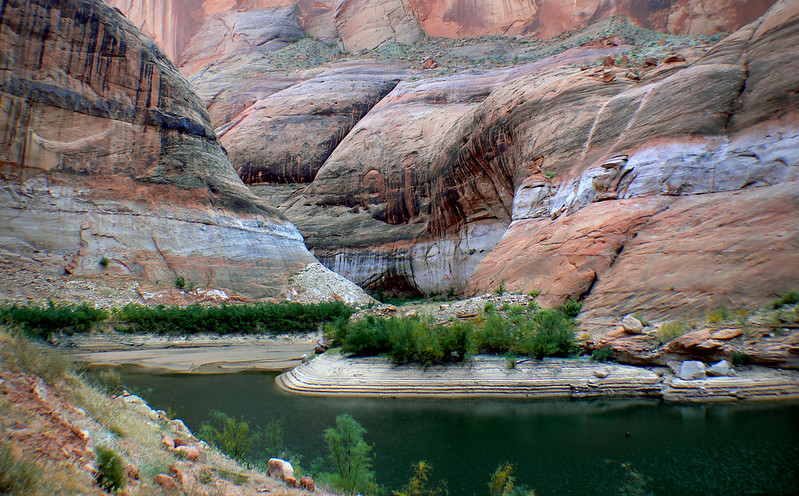
Bernard Spragg/Public Domain

Bernard Spragg/Public Domain
In 2018, climate scientist Seth Arens trudged through sediment up a Colorado River tributary canyon in southern Utah with his family. Just downstream from their hiking spot, the river’s foaming rapids turned placid as it spilled into Lake Powell, the second largest man-made reservoir in the country.
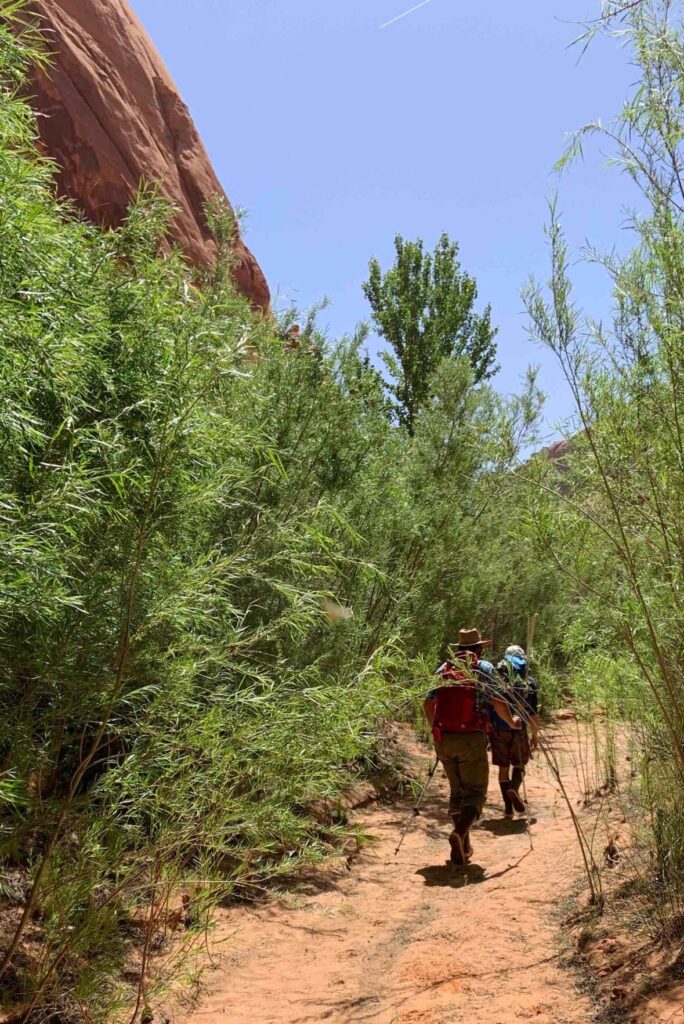
As the family stared up the steep, dry canyon walls, Arens’ 7-year-old daughter pointed at a little cottonwood tree poking up from the desert ground. “At that moment, this light went off in my head,” Arens said. “I was looking at that landscape through a lens of scarcity, of how much this landscape had been devastated. And I switched, and started looking at this landscape through a lens of the possibility of renewal.”
Water levels in Lake Powell first began to drop in the year 2000. This trend has continued almost uninterrupted since then, and the reservoir is currently only one-third full. The land is drying up as questions on how to deliver water to millions of people across the region remain unanswered.
But with every foot the lake drops, the potential for a new beginning gets stronger. Native habitats are returning to the Colorado River’s tributary canyons, and the resurgence of these riparian ecosystems could impact the coming decisions that will change how the river is managed.
When the U.S. Bureau of Reclamation completed construction of Glen Canyon Dam in 1966, Glen Canyon became a giant bathtub as the Colorado River slowly flooded hundreds of thousands of acres to form Lake Powell. It also drowned the desert oases that made their homes along this massive river system. This riparian ecosystem is now returning as the megadrought in the southwest has made it impossible to keep Lake Powell full.
Arens has spent the last two years observing, cataloging, and analyzing this rebirth, conducting what he calls “usable science.” The idea is that his research will help government agencies in making land and water management decisions for the Colorado River Basin.
These changes are happening without direct human interference, in a process that ecologists call ecological succession. Essentially, this means the development of an ecosystem over time, where the growth of a few colonizing species slowly gives way for new species to “succeed” the initial species, eventually creating biodiversity.
In the case of Glen Canyon, Arens observes a change at varying elevations, which indicate how long the land has been out of the water: The higher the elevation, the more robust and diverse ecosystems he sees. “It’s like walking back in successional time,” Arens said. “As I’m walking upstream in the tributary Canyon, I’m getting to older and older landscapes, and landscapes that have been exposed to natural, spontaneous ecological succession for longer and longer periods of time.”
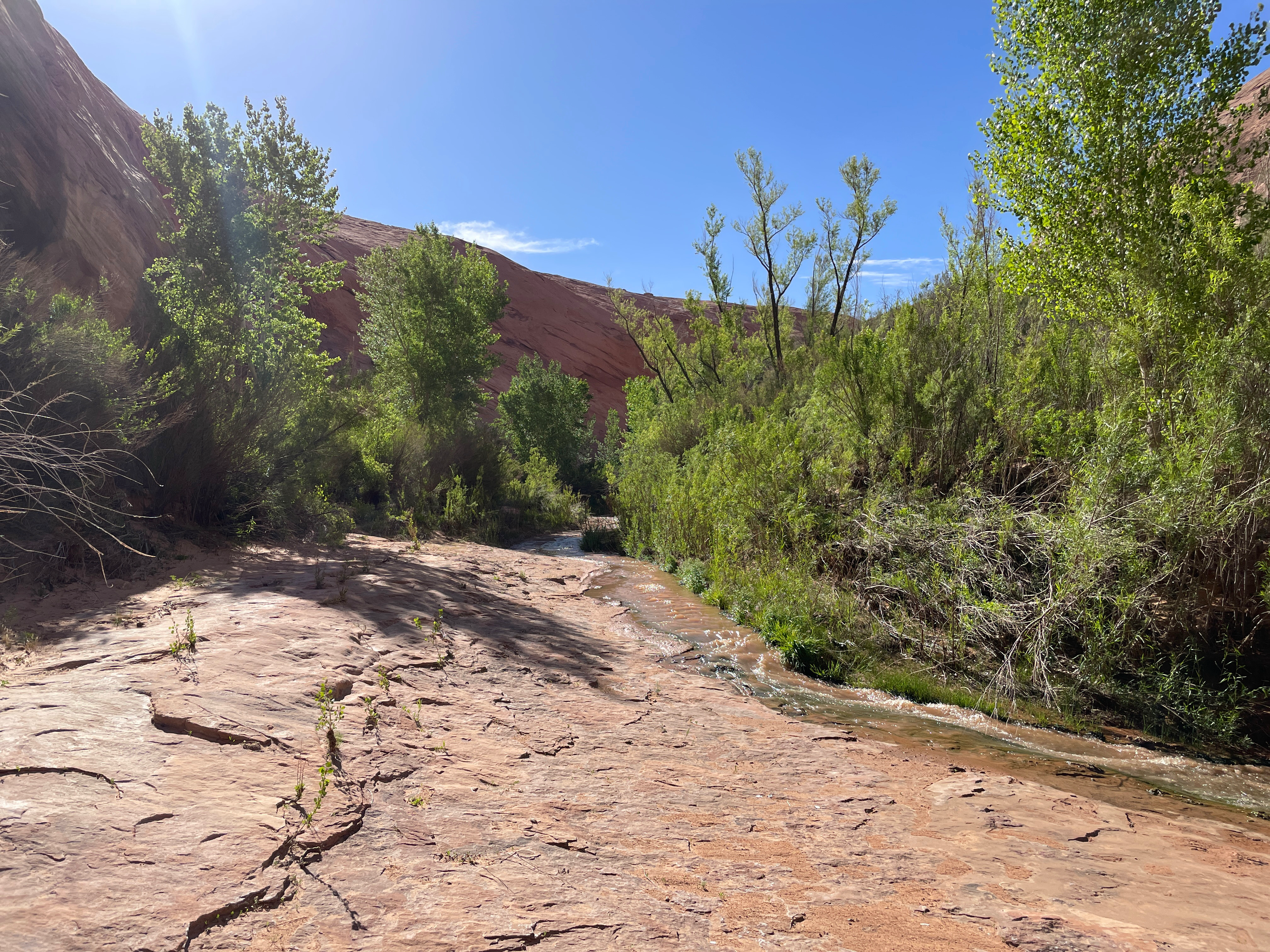
One of the key observations so far is the fast resurgence of cottonwood trees, a keystone species in Glen Canyon. “Cottonwood groves in the desert are, just from a human standpoint, lovely environments to be in. They’re these little oases of shade, and diversity, for that matter,” Arens said.
The presence of cottonwoods is early evidence that the system is moving towards a “climax community” of peak biodiversity. As such, Cottonwood canopies provide essential habitats for nesting birds, cast havens of shade for desert creatures, and their roots and fallen branches create secure habitats for native fish.
Typically, Arens observes cottonwoods first in areas that have been out of the water for 3-5 years. As he walks towards higher elevations, where the land first emerged from the lake a decade ago, the trees are taller and thicker.
Right now, the Bureau sees invasive species, like tamarisk and russian thistle, as the dominant vegetation in Glen Canyon. Arens’ research is proving this assumption wrong. So far, he’s found that native species are slowly replacing the invasives as the ecosystem recovers. “They’re out competing tamarisk at almost every level,” Arens said.
In a lab in Fort Collins, CO, Peter Brown, a dendrochronologist for Rocky Mountain Tree Ring Research, has been working closely with Arens. By looking at the tree rings present in cottonwood samples that Arens has collected, Brown can determine the age of each tree.
Inside a tree trunk, concentric rings show the growth of a tree year to year. Each ring also contains climate data dating back hundreds of years before humans began keeping records.
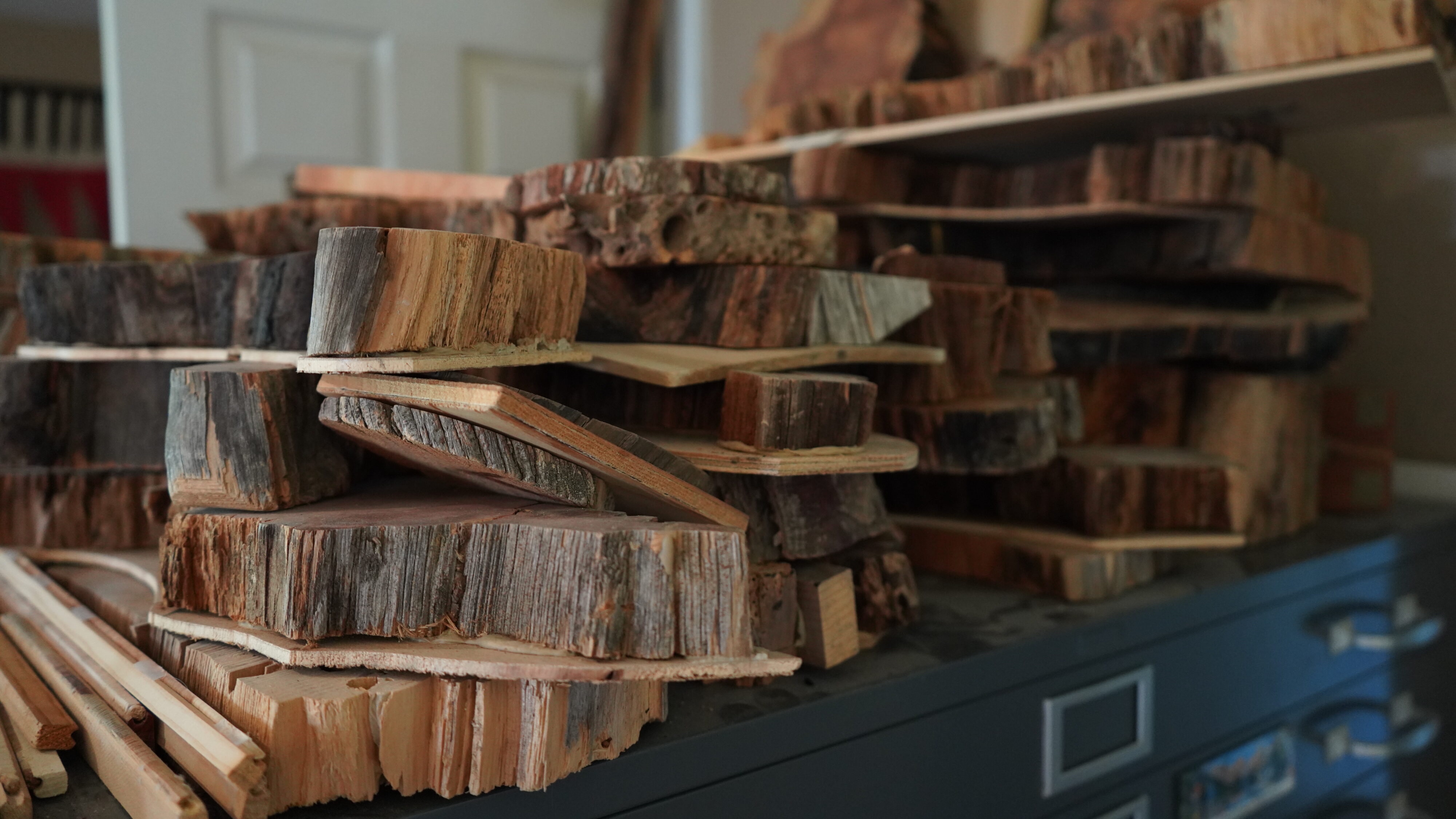
Using tree ring data from the Colorado River Basin, scientists like Brown are able to reconstruct periods of drought and high stream flow over the last millennium. This data tells us the southwest is currently the driest it has been in over 1,200 years. It also exposes a critical error in the logic behind Glen Canyon Dam’s construction.
Informed by 22 years of human recorded stream flow data, states in the Colorado River Basin drew up the Colorado River Compact in 1922, which paved the way for the construction of the dam. It also turns out this period was the wettest 20 year period in measurable history, “Just by pure coincidence,” Brown said.
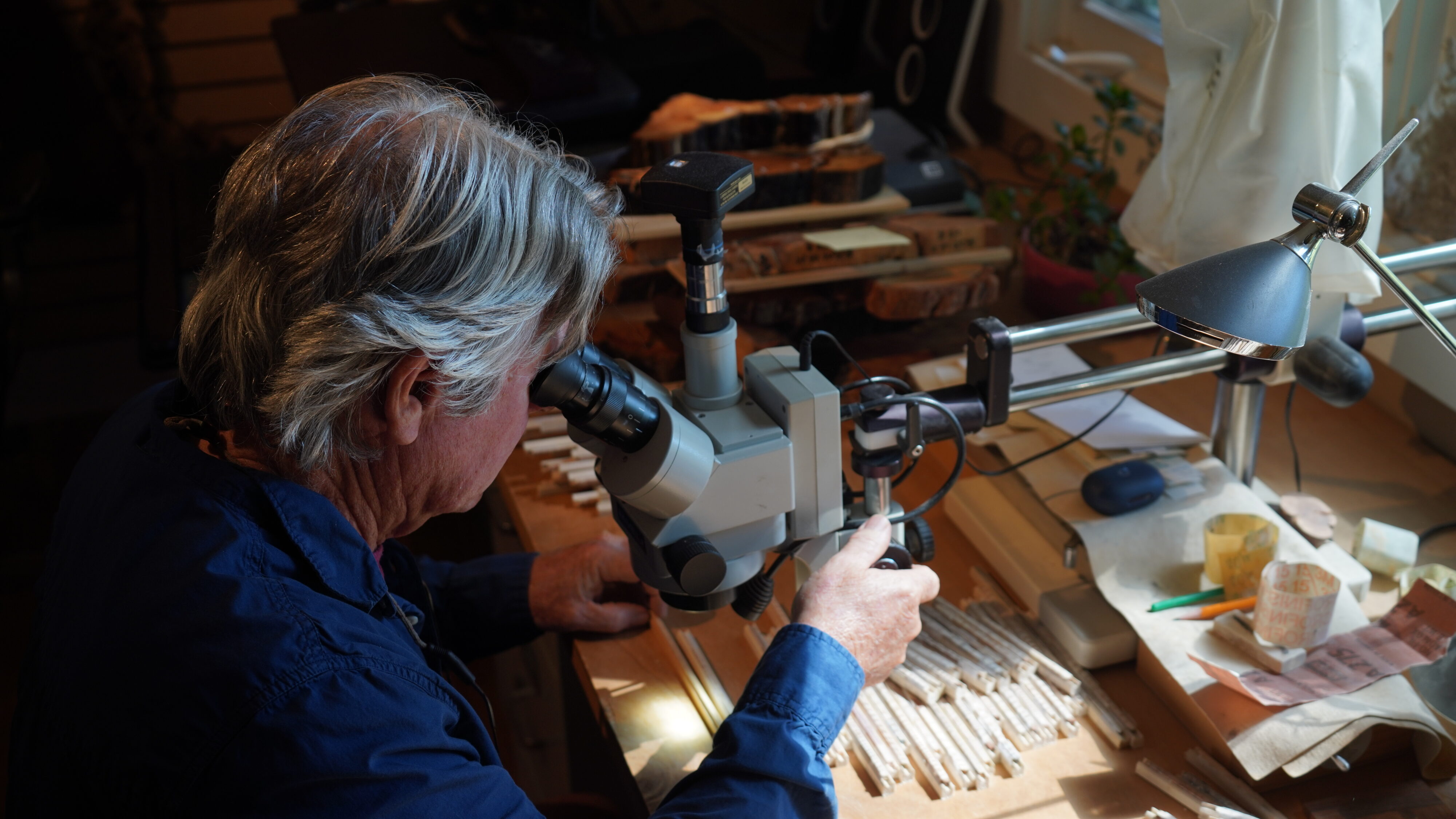
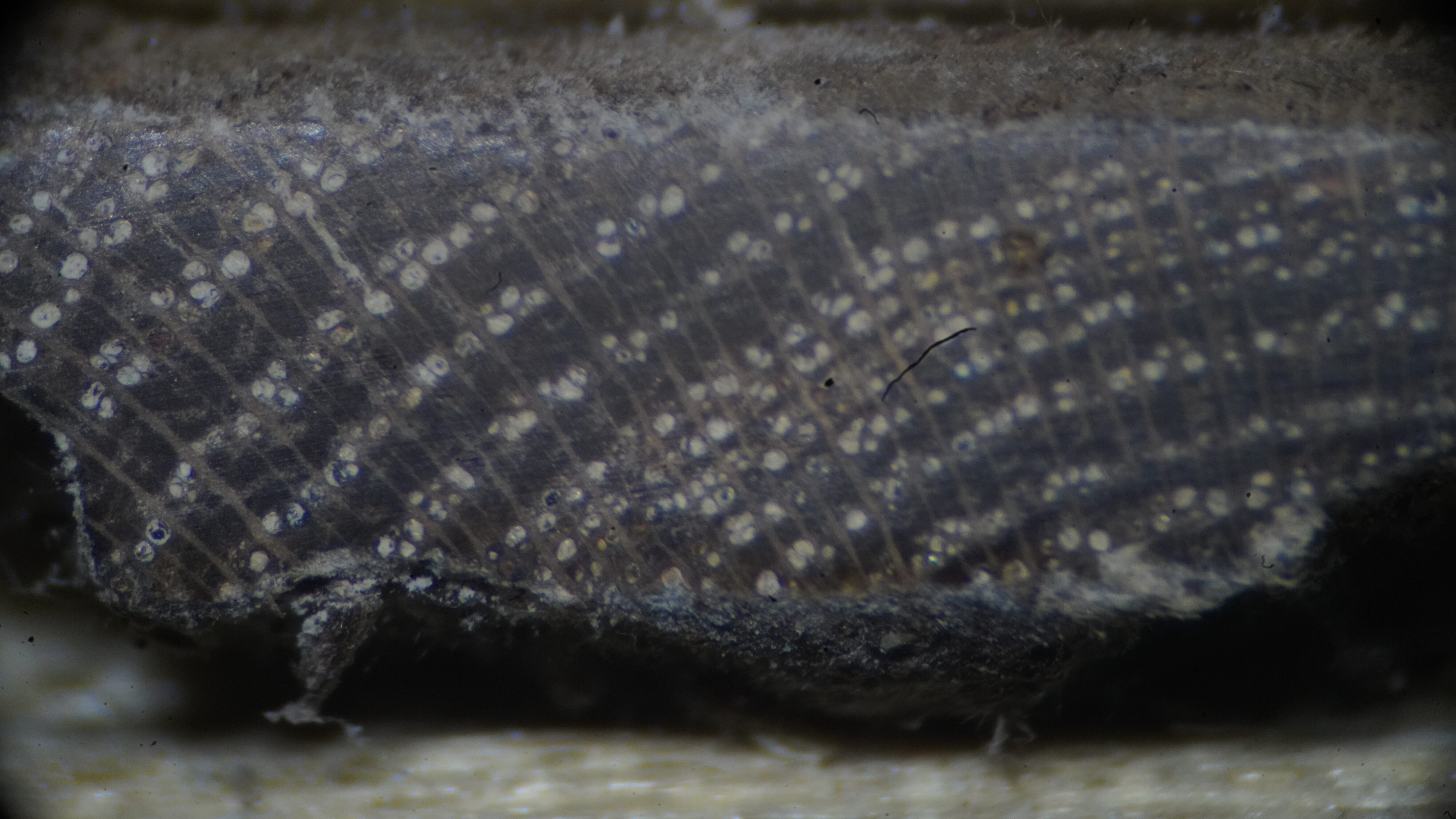
Today, data from the resurging cottonwoods is evident of a rapidly recovering ecosystem. While Arens’ and Brown’s research is still in progress, they’ve found that cottonwoods and other native trees popped up almost immediately after Lake Powell’s water levels started dropping two decades ago.
Where the lake once painted the landscape blue, patches of green now dot the desert canvas. But these brush strokes aren’t science, and Arens’ research provides evidence that goes beyond the anecdotes of recovery. “Lake Powell is no longer a slick rock container for water,” Arens said. “There is a cost to refilling that, now (that) there will be a loss of ecological resources.”
The U.S. Bureau of Reclamation is in process of drafting its Supplemental Environmental Impact Statement (SEIS), which will update the current guidelines for managing the Colorado River. The SEIS provides an interim solution, while the Bureau begins the process of determining the post-2026 operations for the Colorado River.
The process involves years of planning for a drier future brought on by human caused climate change. Mainly, it will make changes to the operations of Lake Powell, and its sister reservoir Lake Mead, that sits further down river.
From the ecological resurgence of the area’s riparian habitats, to tribal water rights, impacts on agriculture, and the massive recreational economy generated by visitors to the lake; the post-2026 plan will create a tidal wave of impacts on the stakeholders in the basin.
Right now, water storage is shared between Lake Powell and Lake Mead. Powell provides water to a few thousand people in nearby Page, UT and the Lechee Chapter of the Navajo Nation, and largely acts as a way to capture surplus water and later release it downstream to Mead. Nearly 25 million people rely on water from this reservoir. As water levels in both reservoirs continue to decline, a movement to store all of the water in Lake Mead is gaining steam.
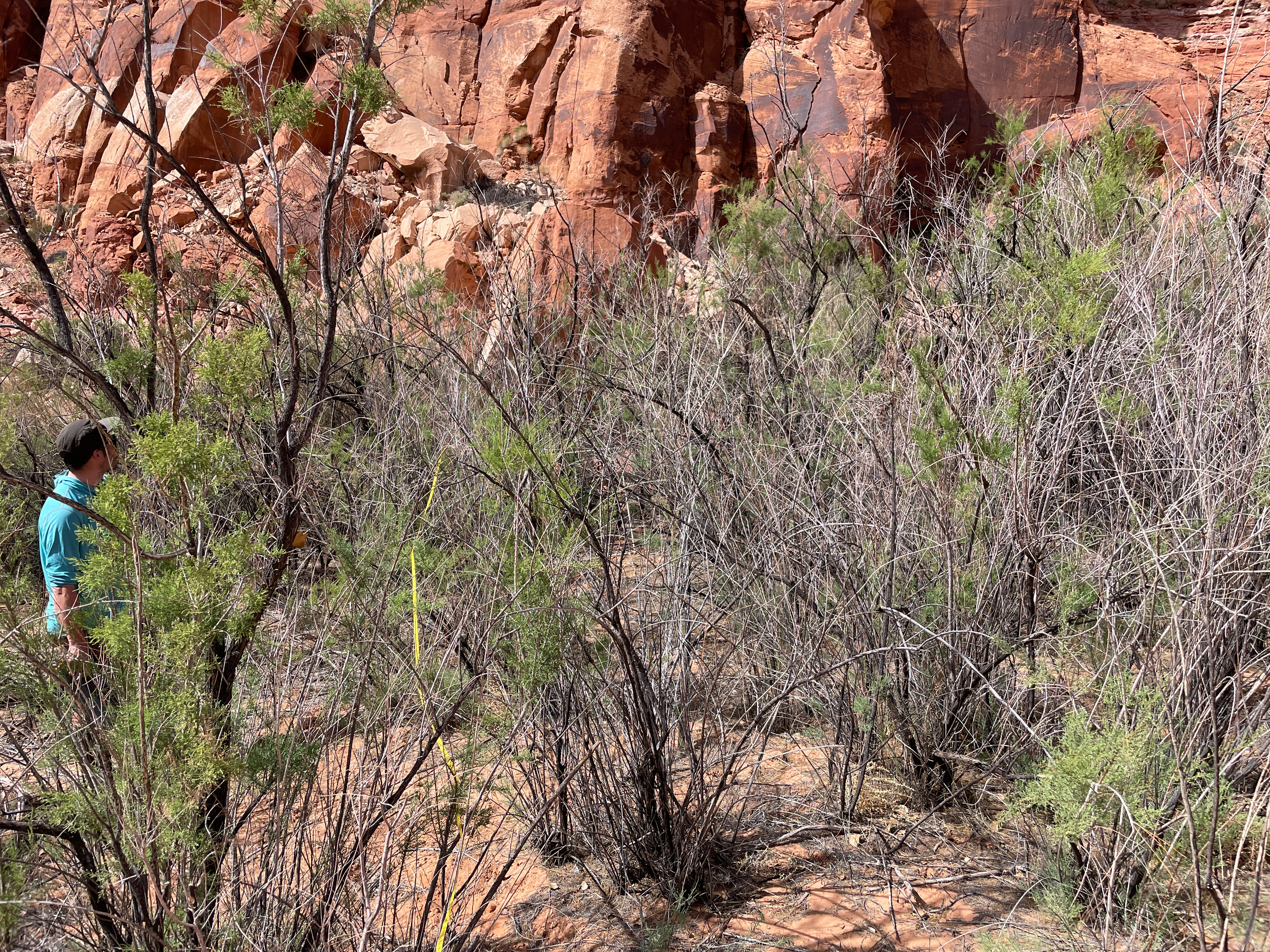
“You can’t fill (Lake Powell) back up,” said Eric Balken, Executive Director of the Glen Canyon Institute (GCI), a non-profit with a mission to restore Glen Canyon. In 2009, GCI released their Fill Mead First proposal, an approach that would consolidate all the reservoirs’ water into Mead. This would involve reengineering Glen Canyon Dam, an approach that Balken said is getting support from farmers and water authorities in the basin. It would also help avoid the worst case scenario: deadpool. If water levels in Lake Powell drop low enough, Glen Canyon Dam will no longer be able to send water downstream at a sustainable rate. “It turns from an asset into a liability,” Balken said.
What’s happening in Glen Canyon is unique. It’s not just cottonwoods returning, it’s the revival of an entirely new ecosystem. At Lake Powell’s lowest level in April 2023, over 100,000 acres of land, from tributary canyons to the shores of the Colorado River, were no longer under water. “It’s not just drought, not just climate change, not just water use, it’s all three of those things acting in concert together,” that have caused water levels to plummet, Arens said.
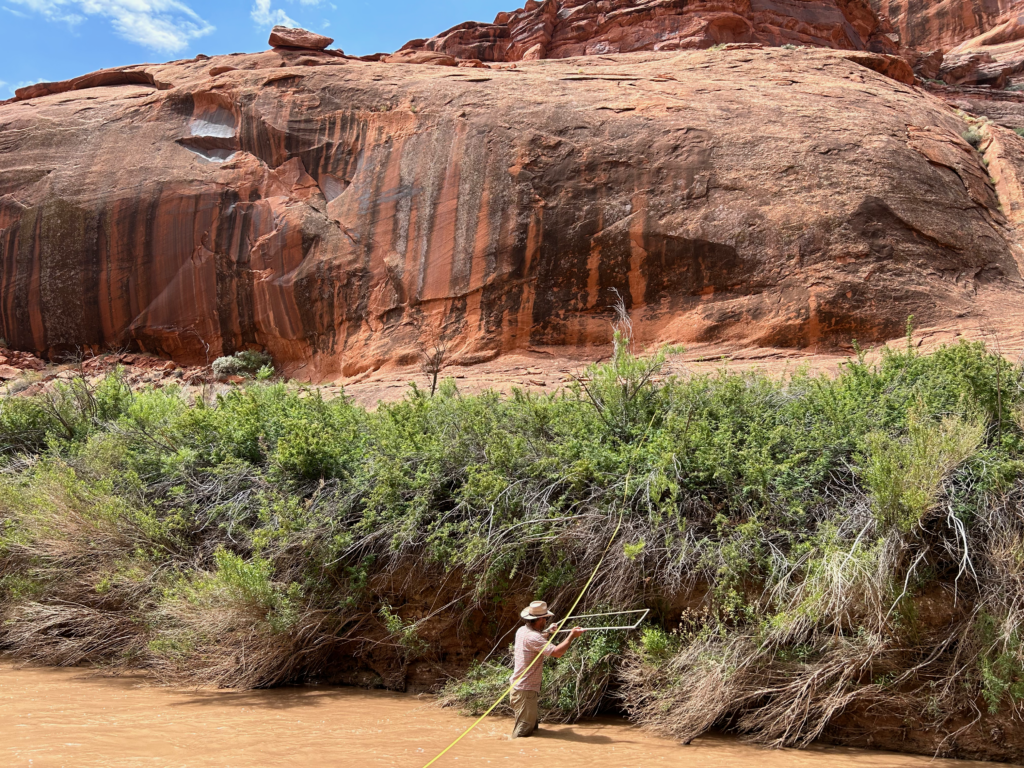
Usually, this spells doom, but it could be a chance for a new start in Glen Canyon. Glen Canyon Dam changed the landscape indefinitely, but the unintended consequences of native ecosystems returning to this iconic canyon could spur a change in perspective. “We want people to realize the potential for Glen Canyon and show the world that what’s happening there is a good thing,” Balken said.
There is no simple solution to managing the future of the Colorado River. Arens just hopes that this resurgence will be a factor. “It is one of dozens, hundreds of management issues in the Colorado River Basin that… should be considered in that process.”